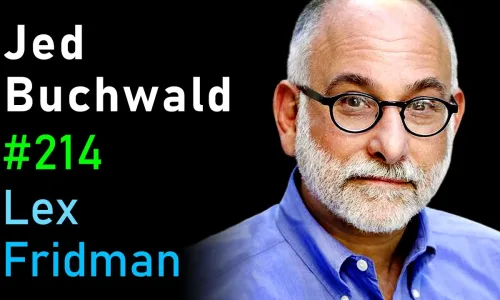See all Lex Fridman transcripts on Youtube

Jed Buchwald: Isaac Newton and the Philosophy of Science | Lex Fridman Podcast #214
1 hours 52 minutes 16 seconds
🇬🇧 English

Omnivision Solutions Ltd
- Getting Started
- Create Transcript
- Pricing
- FAQs
- Recent Transcriptions
- Roadmap